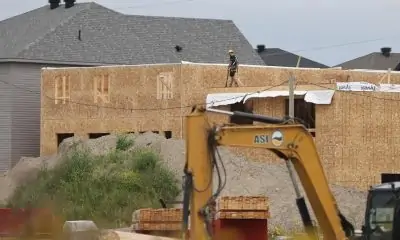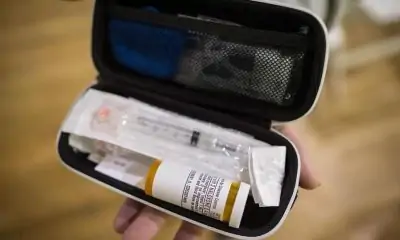WASHINGTON (AP) — Americans can once again order COVID-19 tests, without being charged, sent straight to their homes.
The U.S. government reopened the program on Thursday, allowing any household to order up to four at-home COVID nasal swab kits through the website, covidtests.gov. The tests will begin shipping, via the United States Postal Service, as soon as next week.
The website has been reopened on the heels of a summer COVID-19 virus wave and heading into the fall and winter respiratory virus season, with health officials urging Americans to get an updated COVID-19 booster and their yearly flu shot.
“Before you visit with your family and friends this holiday season, take a quick test and help keep them safe from COVID-19,” U.S. Health and Human Services Assistant Secretary for Preparedness and Response Dawn O’Connell said in a statement.
U.S. regulators approved an updated COVID-19 vaccine that is designed to combat the recent virus strains and, they hope, forthcoming winter ones, too. Vaccine uptake is waning, however. Most Americans have some immunity from prior infections or vaccinations, but under a quarter of U.S. adults took last fall’s COVID-19 shot.
Using the swab, people can detect current virus strains ahead of the fall and winter respiratory virus season and the holidays. Over-the-counter COVID-19 at-home tests typically cost around $11, as of last year. Insurers are no longer required to cover the cost of the tests.
Before using any existing at-home COVID-19 tests, you should check the expiration date. Many of the tests have been given an extended expiration from the date listed on the box. You can check on the Food and Drug Administration’s website to see if that’s the case for any of your remaining tests at home.
Since COVID-19 first began its spread in 2020, U.S. taxpayers have poured billions of dollars into developing and purchasing COVID-19 tests as well as vaccines. The Biden administration has given out 1.8 billion COVID-19 tests, including half distributed to households by mail. It’s unclear how many tests the government still has on hand.























